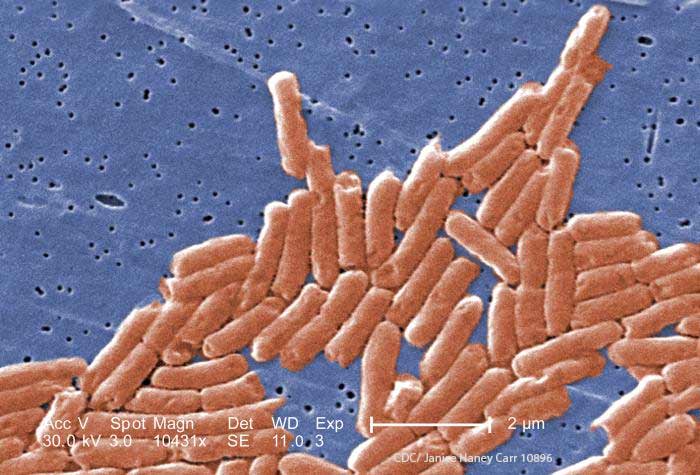To date, 134 people in Washington have contracted Salmonella I 4, [5],12:i:- infections linked to Kapowsin Meats whole pigs, according to the Centers for Disease Control and Prevention (CDC). Sixteen people have been hospitalized.
Epidemiologic, laboratory, and traceback findings have identified pork produced by Kapowsin Meats as a likely source of this outbreak of Salmonella I 4,[5],12:i:- infections. The most significant evidence is laboratory testing of environmental samples collected from Kapowsin Meats by the Washington Department of Health. These tests confirmed the outbreak strain of Salmonella Salmonella I 4,[5],12:i:- was present in the facility.
Prompted by this outbreak, Kapowsin Meats, a Graham, Washington company, issued a recall of about 116,262 pounds of whole hogs that may be contaminated with Salmonella I 4, [5],12:i:-.
The recalled whole hogs for barbeque were produced between April 18, 2015 and July 27, 2015, and bear the establishment number “Est. 1628” inside the USDA mark of inspection. Prior to recall, they were shipped to various individuals, retail locations, institutions, and distributors in Alaska and Washington.
Traceback investigations have identified 32 people sickened in this outbreak who consumed whole hogs for barbeque from Kapowsin Meats prior to illness onset. In addition, numerous ill people were identified as part of illness clusters following events such as whole hog roasts. Illness onset dates for the 134 case-patients in Washington range from April 25, 2015 to July 29, 2015.

DNA “fingerprinting” is being used on Salmonella bacteria isolated from ill people. This is done with a technique called pulsed-field gel electrophoresis, or PFGE. Five DNA “fingerprints” (outbreak strains) are included in this outbreak investigation. The five strains are rare in Washington.
All patient cultures of the the outbreak strain Salmonella I 4,[5],12:i:- i were resistant to multiple drugs used to treat bacterial infections. This means the infections are extremely hard to treat.